|
I now write a column for the New Zealand Herald, so I don't blog anymore. I have left these here because I had a heap of fun writing them and, you never know, I might come back to writing them at some stage.
3 Comments
I was involved in a prison break in Papua New Guinea while making a documentary with Ross Kemp in 2013. That the situation doesn't rate a mention in his most dangerous or bizarre stories says something about Kemp's life.
Here's my take on things while on holiday with him 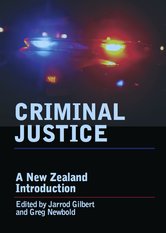 As a part of the launch of the book Criminal Justice a New Zealand Introduction, there was the most impressive panel of people I've seen assembled in one room. Each talked about the biggest issue facing criminal justice as they saw it. the speakers were:
Since I started writing for the Herald, I don't blog much at all. So here's a few of my favourite pieces of late.
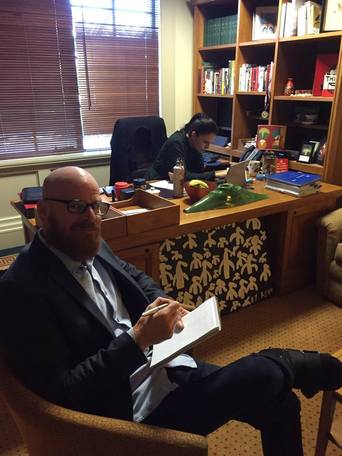 I rather miss that beard. I rather miss that beard. The difference in the leadership of Labour and National has never before been so stark. Young, female and liberal on one side. On the other: older, male and conservative. The one thing both leaders have in common is neither really wanted their jobs. In February last year I interviewed Bill English and he was emphatic. Here’s our exchange: JG: If and when he retires John Key will leave a gaping hole in the National Party. He has been an incredibly popular and competent prime minister. Any chance you will step up? BE: No. JG: Zero chance? BE: Well I’ve always said I wouldn’t go for the leadership of the National Party again JG: Things change in politics. BE: Yeah, well that hasn’t changed. By December he was leading the National Party and of course Prime Minister. In June last year I interviewed Jacinda Ardern and she was equally dismissive: JG: You have been touted as a future leader, but what I’m hearing [today is] you don’t want to be. JA: No, no, no… I have always been consistent, because it is not just what you give up, you know yourself and what will be good for you JG: Is it literally inconceivable that one day you could be leader of the Labour party? JA: If I get to choose, yes. This week she became the leader of the Labour Party. Denials of political ambition are common place in politics, of course, but I was convinced what they were telling me was true. Jacinda’s caveat ‘If I get to choose’ may be pertinent here, having the leadership rather thrust upon her, but the reason I believed them both was the very personal stories that came with each of their denials. English spoke about the personal difficulties he experienced when he had previously led the National Party and steered them toward the worst defeat in their history; a 21 percent showing in the 2002 election whereby he was rolled as leader. The experience hit English hard. ‘Yeah, it’s not so much the events themselves but the public nature of them. It’s a pretty public failing’. He mentioned his kids in the same breath, suggesting that he had spent years telling them that when they are knocked down they had to get back up. He took his own advice and got on with things – becoming a highly respected Finance Minister. For Jacinda, it was a work life balance that mattered. She wanted a life outside of politics, she didn’t want the constant media scrutiny, and she wanted to have kids. To her mind, she could have the life she wanted as an MP but not as the leader of the Labour party and certainly not as prime minister. The question of kids has plagued Jacinda, and many have rightly pointed out the question would not be aimed at men, but she herself saw this as a factor last year. And how she tackles the issue – if ever it comes to pass – may prove to be a defining not just for her, but for women generally. But what struck me about both of their responses was just how human they were. there was an openness and honesty in both that would appeal to the public, and in the next seven weeks that’s exactly what they will be seeking to do. With Labour in such terrible shape in the polls, Jacinda has in many ways little to lose, and in all likelihood the election will come before her honeymoon period is over. Although, becoming leader in the harsh spotlight on an election campaign is as testing a start as any, and it will exploit whatever weaknesses she may have. If a commanding performance in her opening Press Conference is anything to go by, however, this challenge may prove to be the making of her. Time will tell. Without question English is in the box seat. His party is streaks ahead in the polls and his personal popularity is high. The economy is in great shape, and despite some big issues such as housing his greatest challenge may now be a comparison to his opposite. Standing next to Jacinda, there is a very real risk English will look particularly old school both physically and in substance. And the prospect, however remote, of another dramatic loss will almost certainly make him shiver. The policy platforms of both parties ought provide the greatest impetus to prospective voters, but invariably much falls on the leaders and how they perform. Nowhere will be this truer than over the next seven weeks. Let the battle of the reluctant leaders begin. For those people who enjoy watching politics, this match-up could scarcely be more intriguing. 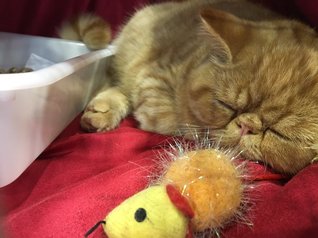 Geoffery, wondering what happened to his face. Geoffery, wondering what happened to his face. Fairfax columnist and crazy cat lady Beck Eleven owns four cats and is about as sane as a box of rocks when it comes to things feline. Who better, then, to accompany me to the Christchurch All Breeds National Cat Show? I don’t know much about the YMCA hall that sits just behind the faded Bishopdale open air shopping complex, but if it’s had queues out the door anytime since Bodgies and Widgies were a thing I’d be surprised. On a cold, wet day, there was apparently naught else in the city to do. The people crowded in the hall looked normal, but each was barely clutching a skerrick of sanity; that’s the lot of cat people. Humans love cats but no cat has ever loved a human. Cats love leg warmth, occasional pats, and food. The rest of the time they barely disguise their distain for the bipedal and furless. When an owner drops dead, a cat will waste little time before chewing on a greying face. Science says that’s because human cheeks and lips are soft and easy to eat. In reality it’s spite. Make no bones about it; cats are arseholes. Beck Eleven doesn’t think so. She was super excited and before I could say I’m not staying for long she was elbowing her way through the crowd to get a better look at the rows and rows of cats in cages. It reminded me of Papua New Guinea’s capital Port Moresby. Chronic inequality and rampant crime mean those of importance exist behind walls and wire while the masses swarm around them sniffing for whatever they can get. It’s a tough and depressing place, but it’s a picnic in spring compared to a cat show. The first cat I saw was an impossibly fluffy fucker with bright blue eyes. It looked up at me sadly. I wanted to break it out. And give it first prize. It was a confusing time. Most of the competitors sat there like dopey loaves of bread and other playfully interacted with their tormentors. I hoped at least one would latch onto a judge and do some playful damage. Despite a loud speaker insisting people don’t touch the cats, kids with grabby little hands were pushing their fingers through the cages for tiny pats. So was Beck Eleven. Less than three minutes in and I wanted out. Just let me go down that last aisle, Beck said. Then we had to stay for the judging of the short hair category. The king of the judges had well manicured facial hair and wore a bedazzled suit jacket, the type of garment only a person without teenaged children and who owned eight cats or more would buy. You know the type. The King handed proceedings over to an American woman who he said was highly qualified. A Trump stooge! I wanted to ask her for her paperwork but instead I received a sharp elbow. This cat, the judge said, is balanced and proportional, describing all cats in the world that have successfully avoided being run over. She proclaimed solemnly: Today this is my 10th place. I imagine the owner was distraught to be out of the top five, and almost certainly lawyering up. By the time we got down to sixth place the look on my face was that of the furry fucker I had met earlier. As we were leaving Beck eyed up all the toys and other paraphernalia on sale. Maybe there’s catnip she said quietly to herself. Catnip being the drug of choice of cat tragics. Get your puss intoxicated enough, the thinking is, and they might start stumbling around proclaiming love. Getting into the car I asked Beck what she really thought of this madness. With a quick drop of her shoulders she said, it was too busy and I wanted to touch them. Touch them more, I said. Touch them more, she agreed. After I dropped Beck off, I arrived home. And there they were. Jawsy and Blackie. The best damn cats in the world. Beautifully balanced and proportional. Next year boys, I said straight to their stupid little faces, you have an appointment at the Bishopdale YMCA hall. The new police research contracts and the principles that guide them should be celebrated by academics, but without question they are a victory achieved by the media. Without the Fourth Estate, this promise to open up the police databases would never have occurred. In November last year, I raised two concerns in the Herald column: the first was that I had been blacklisted by police from accessing their data and the second was a broader issue that police research contracts were curbing academic inquiry and free speech. The Herald's David Fisher gave the whole issue a good nudge on the same day. 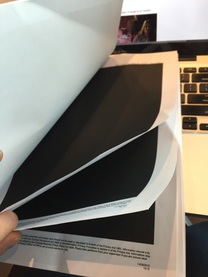 Morning Report really kicked the can along and suddenly it went everywhere. I had some concern that fighting back against the police may prove rather unwise if nobody else cared about the issues. Thankfully they did. Media and the bloggers went to work. The following day CNN picked up the story. My redacted police file was a bit of a giggle but it did make things look sinister, which was perhaps the point. I stated that if the police removed the black ink than I would make it public. My fieldwork research gangs was no picnic but I had nothing to hide. In a letter published the NZ Herald, ten sociologist from the University of Auckland called the police moves against me a nonsense. I only learned about this when I read about it in Gavin Ellis's new book, there were so many examples of support that I couldn't keep up. A number of politicians also came to my defence and one, Peter Dunne, wrote a letter to police minister Michael Woodhouse calling on him to intervene. Woodhouse was unmoved, saying the issue was 'operation'. It wasn't, of course, but it was a deft sidestep. But I do wonder if he pushed things along backstage. Within a couple of days the Commissioner of Police, Mike Bush, was on TV3's The Nation promising a swift rethink. It was 9am, and I opened a beer. Just a week later TV One's Seven Sharp did this entertaining piece in which my nobbly knees where given more airtime than was seemly, and they timed it perfectly. Just an hour or so before the show went to air, the police had officially backed down on my blacklisting and had apologised to me. They also promised to review their research contracts. I can't exactly recall if I did or not, but I probably opened a beer then, too. Certainly I'd had a couple when I met Mike Bush at the end of year Gallery press party. We had a fairly cordial exchange of opinions. There wasn't much to do by this stage, so I just waited to see how the wider issue of the research contracts would play out, saying I had trust in the police. If I'm honest, I wasn't sure I had that much trust but it sounded like a good line when talking to Lisa Owen. Around this time, the vice chancellors of all New Zealand's universities wrote to the police and said they were happy to assist in the redrafting of contracts. And as luck would have it there was a change at the head of the police research team, which meant an 'outsider' would oversees the changes. It just so happened, I knew him. I had undertaken research for him when he was with the Health Promotion Agency - coincidentally, the very work that I was initially banned from undertaking by police. A small world? Sometimes it feels like a cupboard.
Ten months or so later and the fruits of the police efforts have come to pass. And guess what? They look good. RNZ and the Herald covered things this morning. But in a nutshell, where do things sit? On paper the improvements to the contract are reflected in guiding principles that sound terrific. More data is to be released and in a more timely manner. The general thrust can be seen to have moved from a closed approach with exceptions, to an open approach with exceptions. Privately, I had been told by a number of people in the police that an evidence led approach is a real objective and allowing academics greater access to data is a part of this. So it's time for another beer, right? Maybe. These are positive developments without question and those involved ought be congratulated. My only caution is whether or not the people who control the data within the police are on board. Can the culture within that research unit change so dramatically, even with a new person at the helm? Let's hope so. There is another small kicker here, too. As I was typing this Twitter has asked, why isn't all of the data covered by the Official Information Act? It's a great point. And if things don't quite play out as promised, it will be one that will undoubtedly be tested in the courts at some stage. But let's hope it doesn't come to that. Let's hope the new policies work as well as they read. Let's hope that in a year or so we are citing the cops as the exemplar of open government at the forefront of academic inquiry. Let's hope. 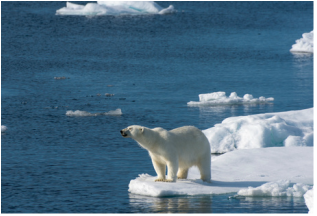 A pissed off polar bear sniffing something A pissed off polar bear sniffing something In my Herald column this week, I said climate change denial ought be seen as a crime in order to express how gravely it should be viewed. Unfortunately, it ran under the headline 'Why Climate Change Should be a Criminal Offence', i.e. let’s bang people up for thought crimes. I didn’t write that and I sure as hell don’t believe it. "That decision was bloody criminal!" on a football filed is never a call for legal sanction against the referee. Similarly, "Olympic athletes ought be seen as ambassadors of their country" is not a suggestion we give them diplomatic immunity. You get the picture. I don’t believe any rational person could read my column and think I wanted to criminalise anything. But that's what the headline said. Despite two emails and one phone call to the paper, that misleading headline remains online. It has now been linked to my university's newsletter. Terrific. While I’m disappointed that right-thinking people may be left with the impression that I want to curtail free speech, I’m more gutted that I had to address such a silly red herring with the climate change deniers who flooded my email inbox. I would have preferred to spend that time calling them complete twonks. * Shayne Currie, the editor of the Herald has jumped onto this and sorted it out. He's a good man. My column in today's New Zealand Herald argues that Australia has lost the plot when it comes to justice. You can read it here. The column talks about a documentary - this is it. |
DisclaimerI reserve the right to change my mind in the face of superior evidence. WINNER: BEST BLOGArchives
April 2022
|
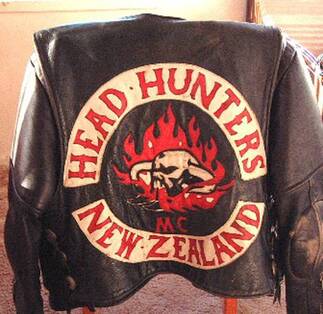
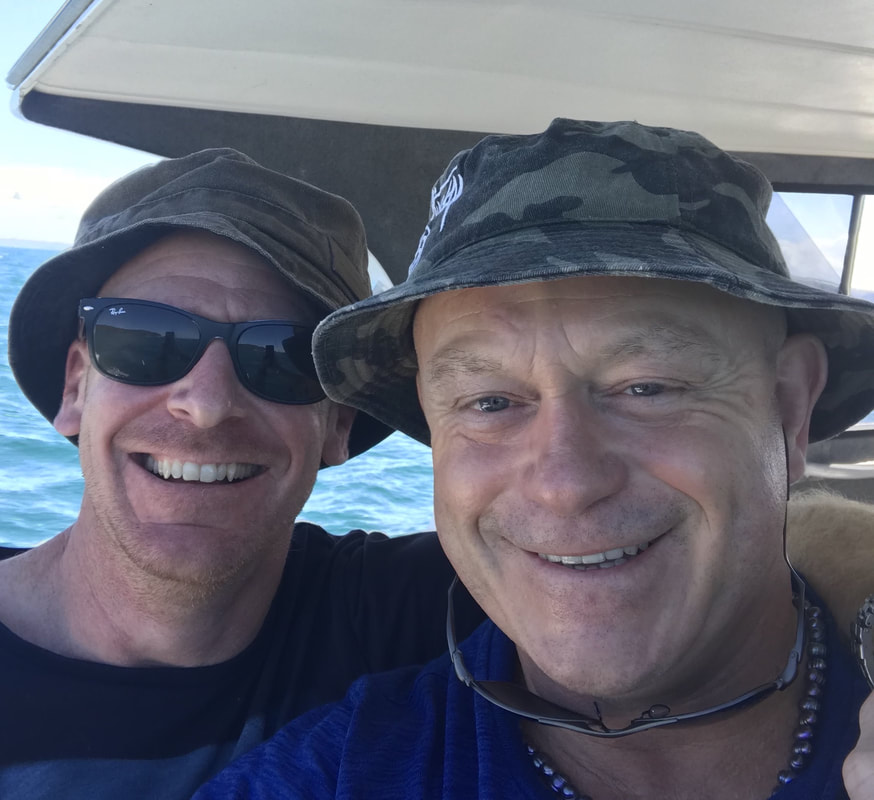
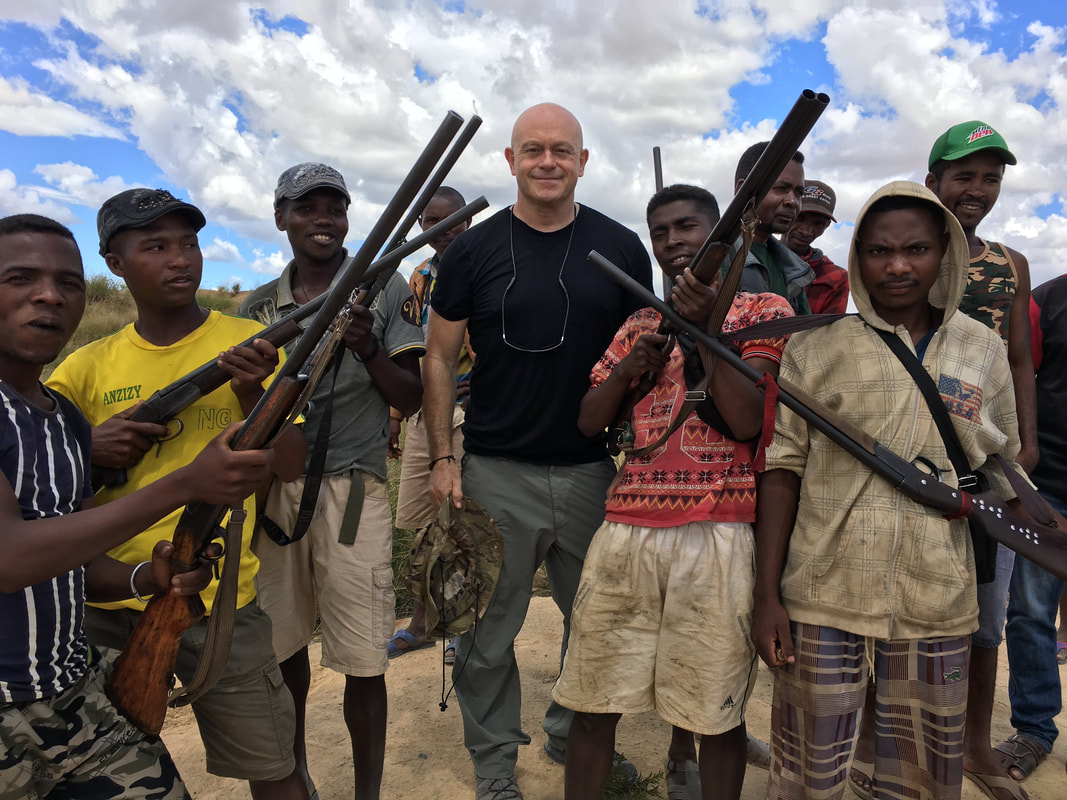


 RSS Feed
RSS Feed